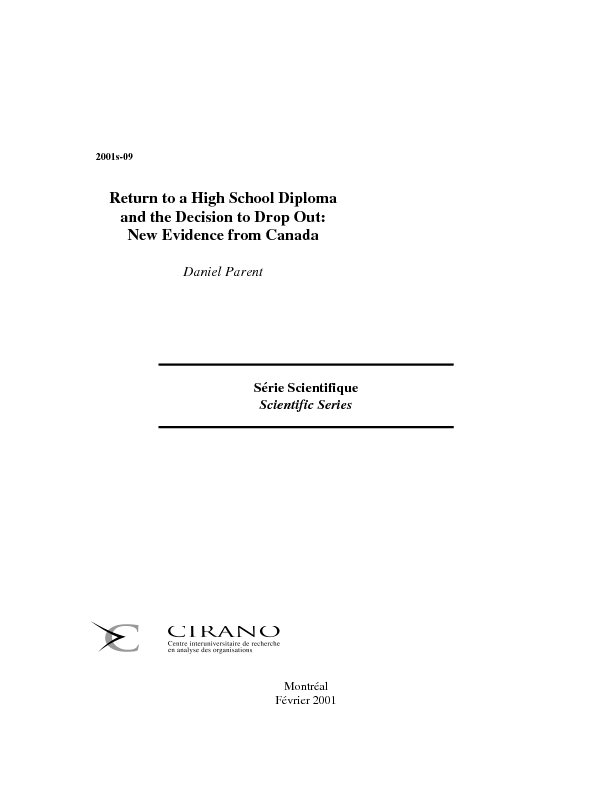Return to a High School Diploma and the Decision to Drop Out: New Evidence from Canada
The objective of this paper is to analyze the process by which young Canadians decide to leave high school and to situate it in the context of the value of a high school diploma over the 1981-1998 period, conditional on not pursuing post-secondary education. Evidence from the 1981-96 Canadian Censuses, the 1998 Canadian Labour Force Survey, and the 1981-1998 March Current Population Surveys shows that the wage premium to holding just a high school diploma in Canada is substantially lower than in the United States over the whole sample period and for all age groups. Turning to Statistics Canada's School Leavers Survey and its Follow-up, it is shown that high school graduates' labour market outcomes are essentially no better than those of dropouts, except perhaps in terms of employment rates. Finally, having established that the labour market value of holding just a high school diploma in Canada is rather low, I go back to the individuals' decision to leave school either as dropouts or graduates and find that they were very sensitive to the conditions of the local labour market. Those conditions affected their graduation decision through their impact on the probability of having a job in the twelve months preceding the date they left school either as graduates or as dropouts.
[ - ]




